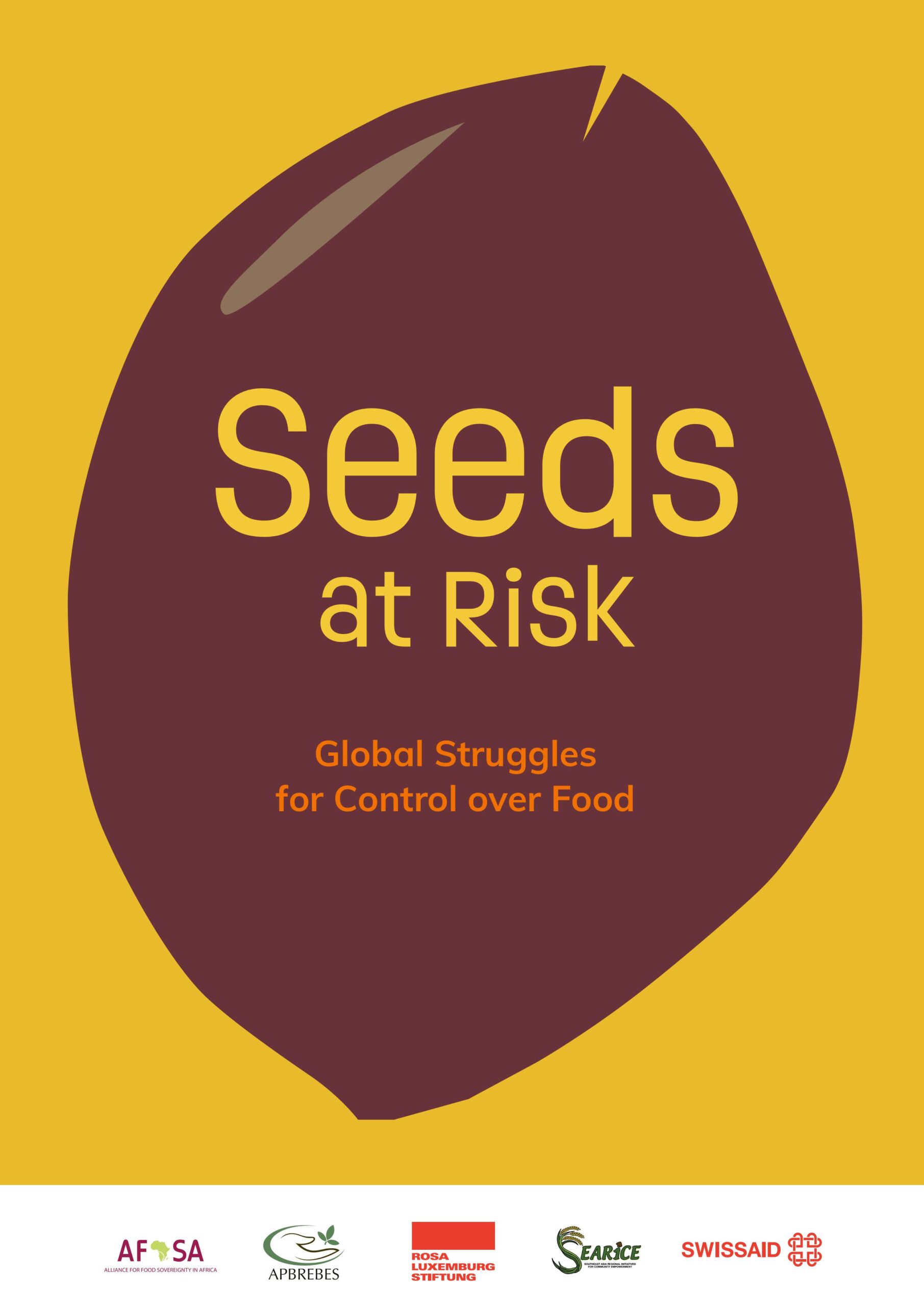Click here for the recording of the webinar
For over 10,000 years, farmers have been selecting, adapting, exchanging, and developing seeds. Their invaluable expertise ensures the availability of varieties suited to local conditions and strengthens our resilience in the face of climate change. It is also a key factor in ensuring food security. In short, seeds are life. The publication Seeds at risk, co-published by SWISSAID, serves as a vital reminder of this.
Today, however, this precious heritage is under threat. Just four major corporations control more than 50% of the global seed market. The industrial seeds they develop, patent, and aggressively promote are increasingly replacing traditional farmers’ seeds.
And the consequences are alarming. Of the world’s 300,000 plant species, only 30 are currently used for food production. Even more concerning, just three—corn, rice, and wheat—account for half of the calories we consume. This loss of diversity poses a serious risk, making our agricultural ecosystems more vulnerable to health and climate crises.
Call to action
Simon Degelo, co-author and expert of biodiversity and seeds at SWISSAID, explains: “This publication highlights the concentration of the seed market in the hands of a few large corporations and the risks this poses, particularly for food security in developing countries. It is more than just a status report—it is a call to action. The various contributions demonstrate that change is possible. We want to encourage civil society and policymakers to actively support farmers’ rights and defend the free use of seeds in all their diversity.”
The publication also shows that the resistance is already bearing fruit. Thanks to international treaties, such as the UN Declaration on the Rights of Farmers (UNDROP), the right of farmers to seeds has gradually been recognised.
Readers can also find out more about how farmers and gardeners from all over the world are working with initiatives to preserve seed diversity and farmers’ rights. Their work and the hope of initiating a global movement are put in the spotlight.

Seeds for everyone!
Missed the webinar? You can watch the recording here
“There is an urgent need to do something about the decline in biodiversity. We are losing seeds with important traits to combat climate change,” emphasised seed expert Simon Degelo in the webinar on 24 April 2025, because without biodiversity, there are no solutions to the problems of the climate crisis.
Diverse seeds are particularly important for small farmers in the Global South. Shalmali Guttal, member of the UN Working Group on the Rights of Women Farmers and Other People Working in Rural Areas, and Mamadou Goïta, member of the International Panel of Experts on Sustainable Food Systems, therefore called for them to have self-determination over their seeds during the webinar.
Around 200 participants took part in the lively discussion. It became clear that broad social alliances – across regions and sectors – are needed to counteract the increasing control by agricultural corporations and stop the loss of biodiversity.
If you missed the webinar, you can watch it here.
With the support of ...

Seeds at risk is co-published by SWISSAID and the Rosa Luxemburg Foundation in partnership with the Alliance for Food Sovereignty in Africa (AFSA), the Association for Plant Breeding for the Benefit of Society (APBREBES) and the Southeast Asia Regional Initiatives for Community Empowerment (SEARICE).
We would like to thank the German Federal Ministry for Economic Cooperation and Development (BMZ), the Swiss Agency for Development and Cooperation (SDC), the Liechtenstein Development Service (LED) and the Zukunftsstiftung Landwirtschaft for their financial support.





